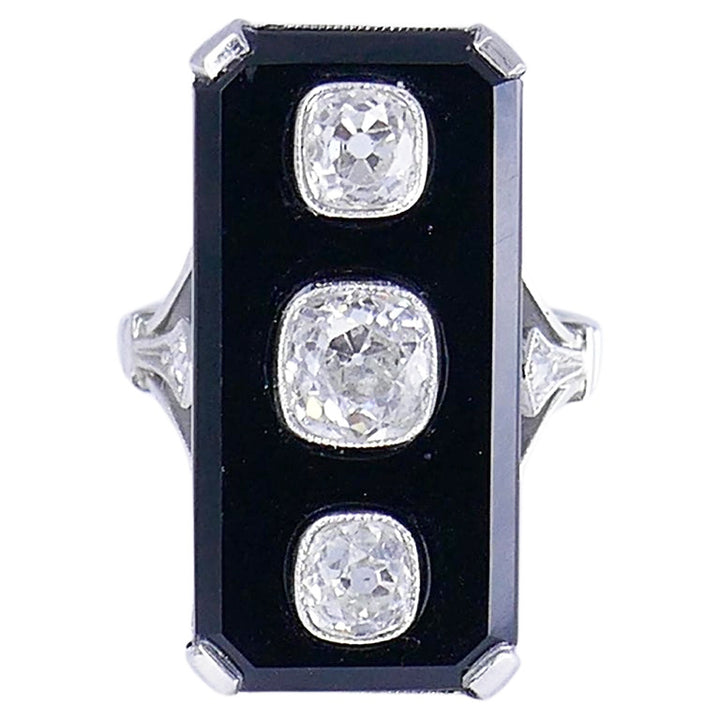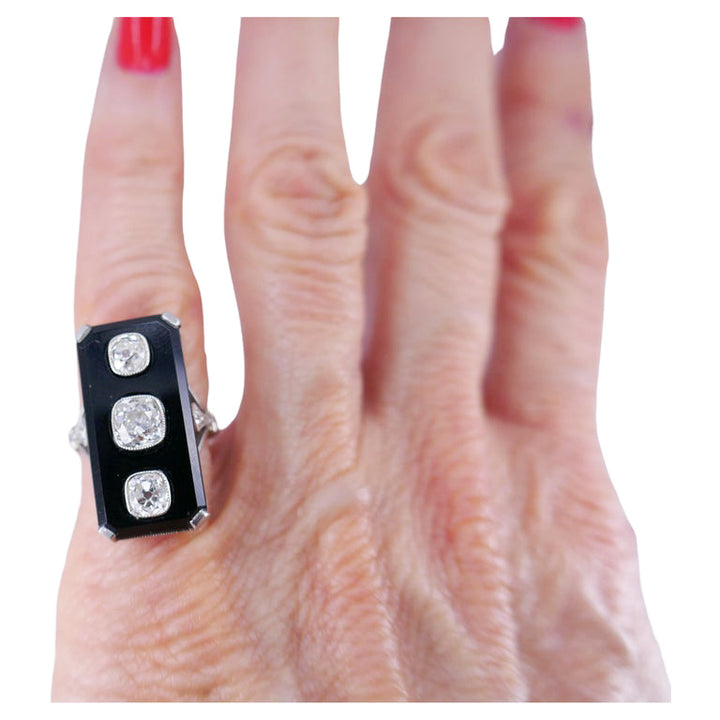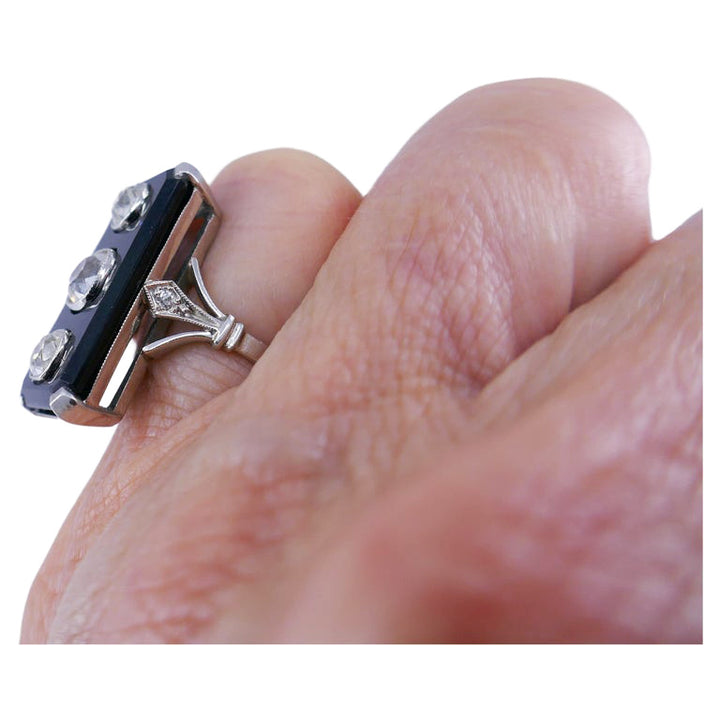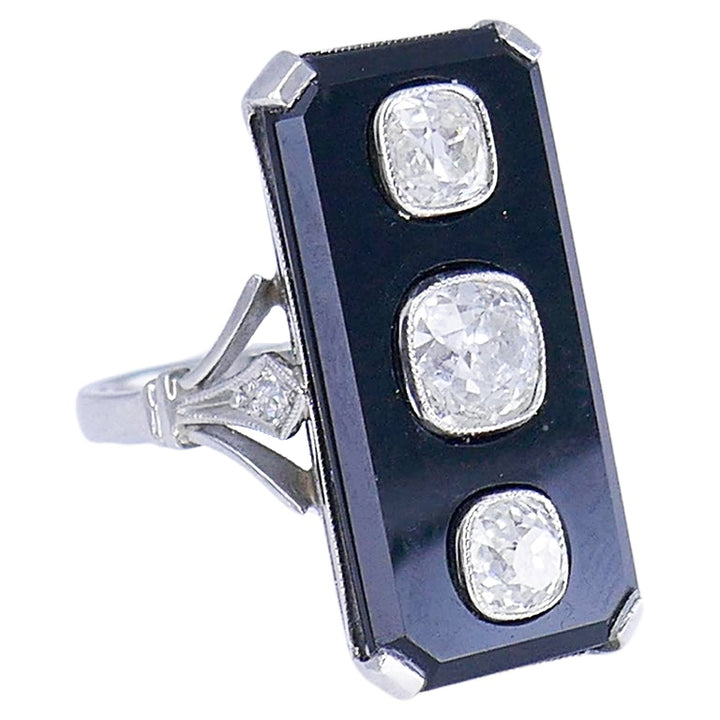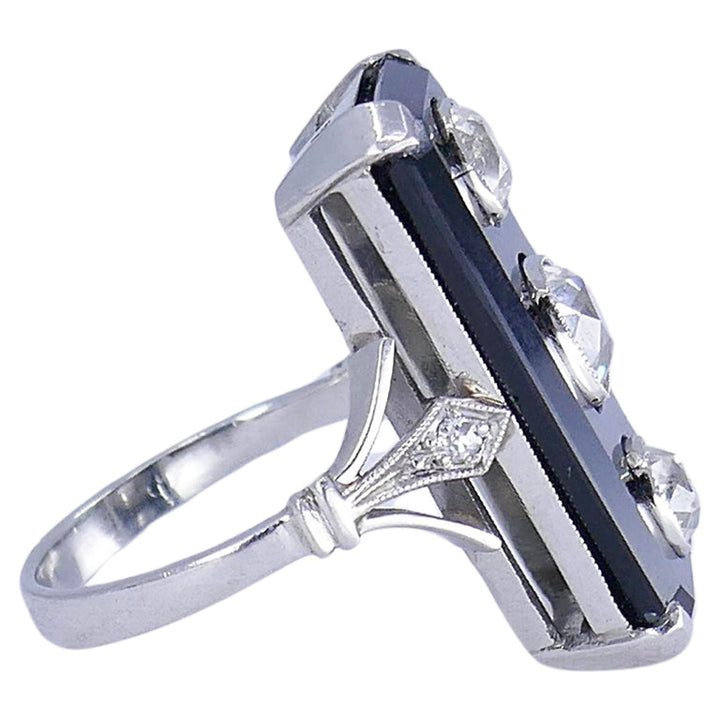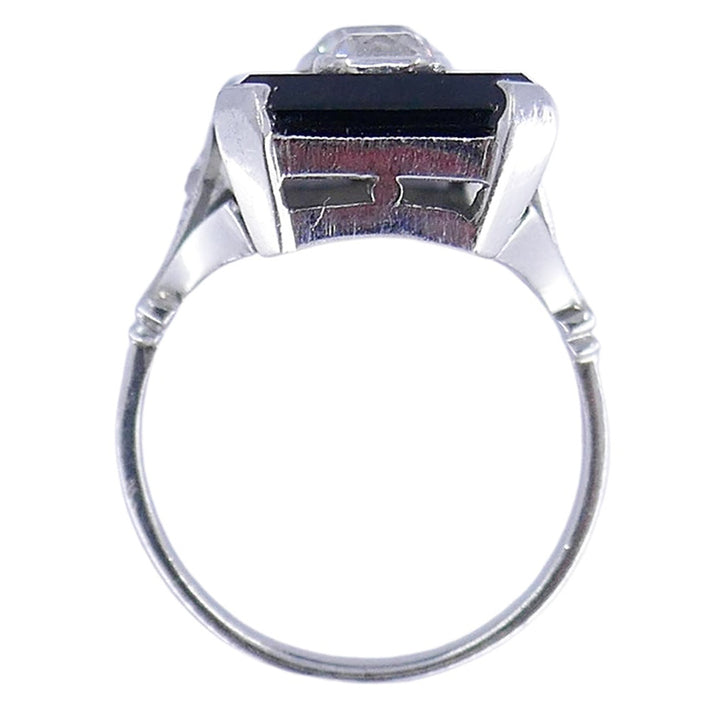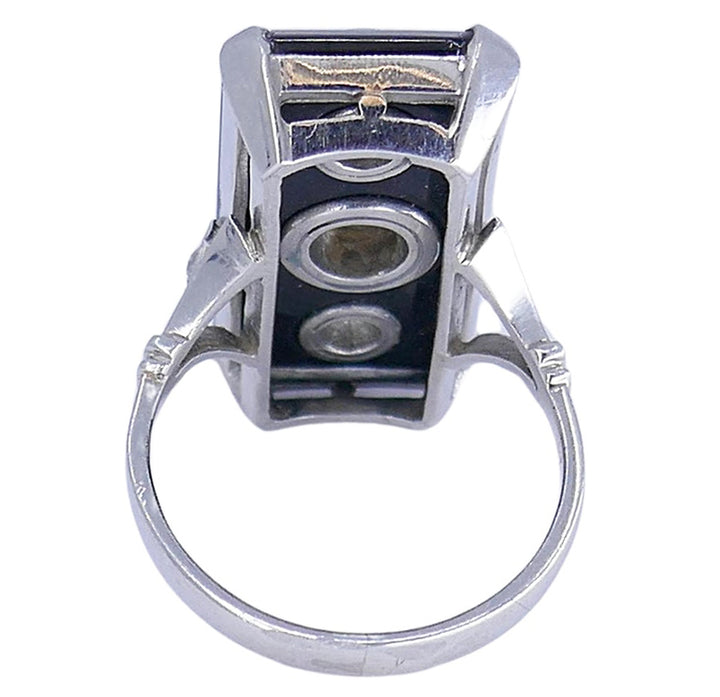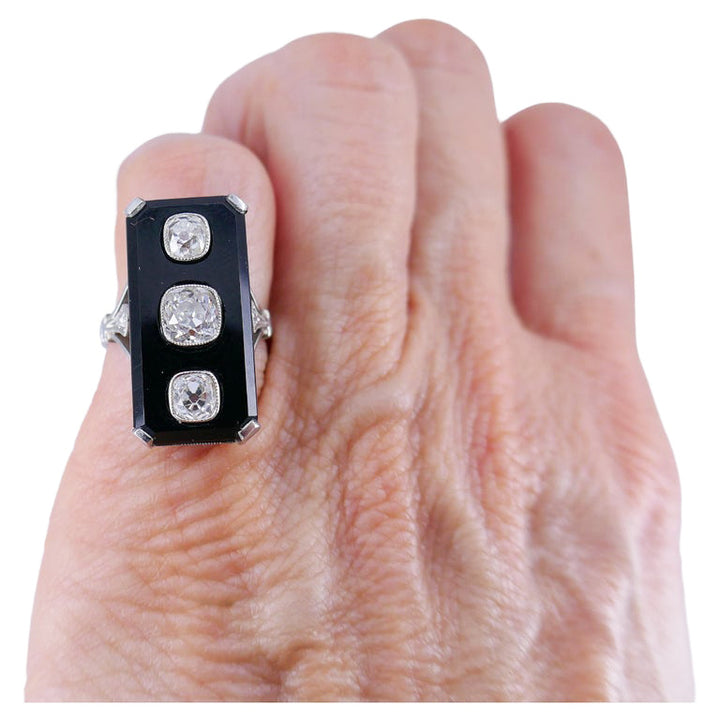70699-NTOO
A gorgeous Art Deco ring made of platinum, featuring diamond and black onyx.Designed in a classic Art Deco elongated rectangular shape, the ring carries bold spirit of the era.
Three antique cushion cut (also called old mine cut) diamonds are vertically staged on the surface of the black onyx. They are mounted in platinum bezel setting, with a larger diamond in the center and two smaller gems above and below. The shank is adorned with two little diamonds set on the sides. The black onyx is set in a four-prong setting with chamfered corners.
This Art Deco ring with three diamonds, softly sparkling on the contrasting black background, is a great conversational piece.
Art Deco, an influential design style, emerged in the early 20th century, reaching its peak during the Jazz Age, in the 1920-1930s. Since then, Art Deco jewelry has remained highly appreciated for its strong geometric shapes, undeniable elegance, and chic.
The jewelry from this period reflects cultural changes of the time, mirroring the exuberance of the Roaring Twenties. For instance, square, triangular, and trapezoidal cuts were favored, reflecting a departure from the organic motifs of previous design eras. Art Deco jewelers embraced new materials and techniques Platinum, being the most popular metal during the Art Deco era, also contributed to the period jewelry popularity. At that time the Merensky-Reef, the world's largest platinum deposit, was discovered in South Africa. The metal's characteristics allowed it to create delicate yet durable designs.
The emphasis on symmetry and precision in Art Deco design reflected the influence of the machine age. Jewelry pieces were often precisely crafted, featuring symmetrical arrangements. Art Deco jewelry design often incorporated functional elements. Pieces frequently doubled as practical accessories, such as watches integrated into bracelets or brooches.
The Art Deco movement drew inspiration from various cultures, including ancient Egyptian, Asian, and African motifs. These influences are apparent in the use of symbols and patterns that added an eclectic flair to the jewelry.
Vintage Art Deco engagement rings are always in high demand. They have a perfectly balanced geometry and often feature Old European and cushion cut diamonds. Black and white combos, such as diamond and black onyx, or black enamel create a dramatic effect.
Find your very special Art Deco ring online here
Shop with us for more Art Deco jewelry here
Purity and durability – these two characteristics define platinum from the rest of the precious metals. From the chemical perspective, platinum is one of the most stable elements.
The white color of platinum comes from its purity. While white gold contains an alloy of zinc, copper and nickel, platinum has a pure 95-98% composition. In fact, white gold is yellow gold mixed with other metals and then rhodium plated.
Platinum is durable and more dense than yellow gold. Platinum jewelry lasts for ages and can be passed down from generation to generation.
Platinum's purity and strength make it relevant to the idea of eternal love. It's an embodiment of strong feelings and rarity. That's why platinum engagement rings and platinum wedding bands have been popular ever since.
Platinum is also a symbol of status and reputation. It looks subtle and not as obvious as yellow gold. Gemstones set in platinum are not distracted because of the metal's neutral appearance. The color, brilliance and vibrancy of diamonds and colored stones are amplified next to platinum “true white”.
Adult signature required upon receipt
Pick up in store available.
9454 Wilshire Blvd, Suite M-20,
Beverly Hills CA 90212
(310) 860-9991
Tues – Fri 11:30am – 5:30pm
Sat 10:30am – 4:30pm
Closed Sundays & Mondays
We accept returns within 3 business days of receipt, providing that the item is still in its original packaging and is free from damage.


